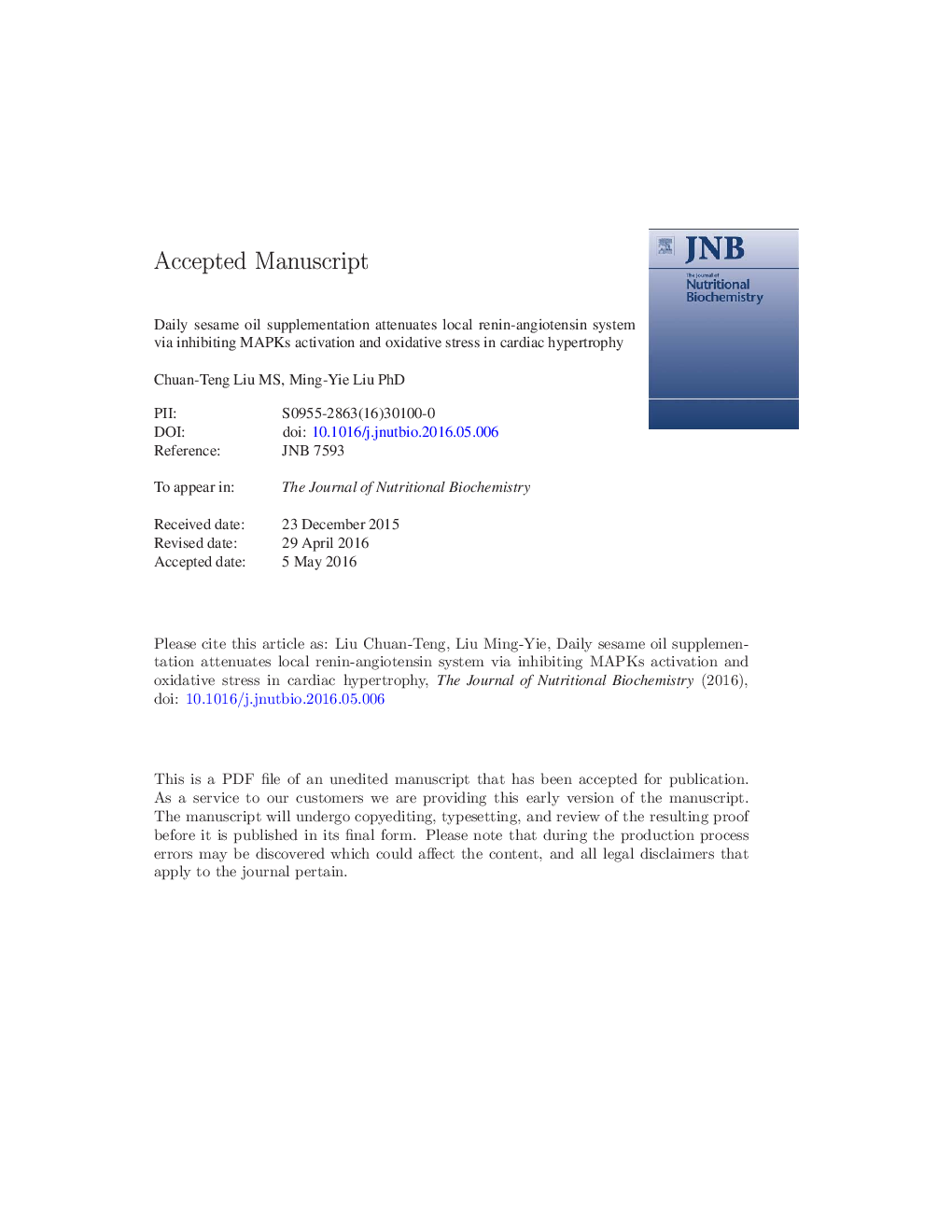| Article ID | Journal | Published Year | Pages | File Type |
|---|---|---|---|---|
| 5512897 | The Journal of Nutritional Biochemistry | 2017 | 33 Pages |
Abstract
The renin-angiotensin system (RAS) is involved in the development of left ventricular hypertrophy (LVH) by which increases cardiac morbidity and mortality. Activation of mitogen-activated protein kinases (MAPKs) and oxidative stress are important in RAS-mediated cardiac hypertrophy. Sesame oil, a potent antioxidant, attenuates hypertension-dependent LVH. We examined the protective role of sesame oil on RAS-mediated MAPK activation and oxidative stress in rats. We induced LVH using a hypertensive model by subcutaneously injecting deoxycorticosterone acetate (DOCA; 15 mg/ml/kg in mineral oil; twice weekly for 5 weeks) and supplementing with 1% sodium chloride drinking water (DOCA/salt) to uninephrectomized rats. Sesame oil was gavaged (0.5 or 1 ml/kg/day for 7 days) after 4 weeks of DOCA/salt treatment. Cardiac histopathology, RAS parameters, expression of MAPKs, reactive oxygen species and lipid peroxidation were assessed 24 h after the last dose of sesame oil. Sesame oil significantly decreased the size of cardiomyocytes and the levels of cardiac renin, angiotensin-converting enzyme and angiotensin II. In addition, sesame oil down-regulated the expression of angiotensin type 1 receptor, JNK and p38 MAPK and apoptosis signal regulating kinase 1, c-Fos and c-Jun in rats receiving DOCA/salt. Furthermore, the induction of nicotinamide adenine dinucleotide phosphate oxidase, superoxide anion and hydroxyl radical and lipid peroxidation by DOCA/salt were inhibited by sesame oil. Sesame oil modulates cardiac RAS to ameliorate LVH by inhibiting MAPK activation and lowering oxidative stress.
Keywords
Related Topics
Life Sciences
Biochemistry, Genetics and Molecular Biology
Biochemistry
Authors
Chuan-Teng Liu, Ming-Yie Liu,
